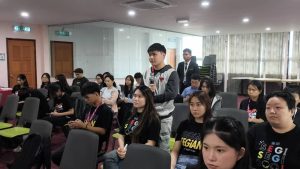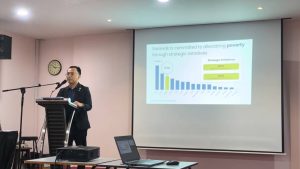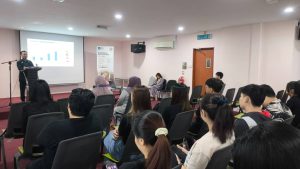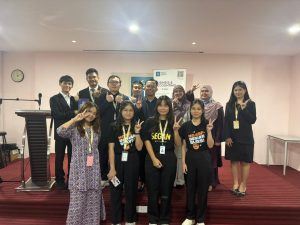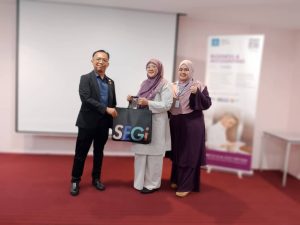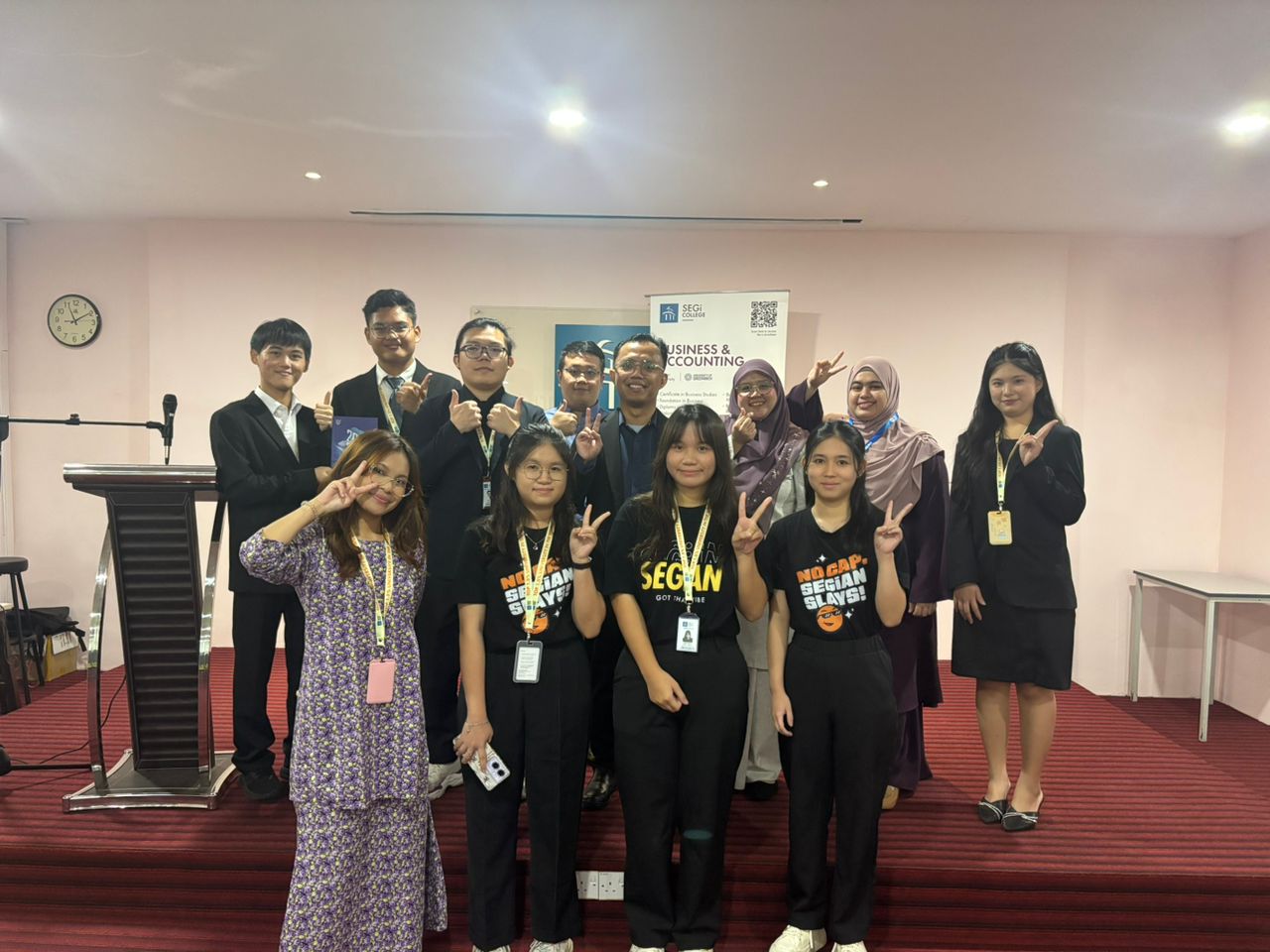Global economic decisions often feel distant, yet their impact can be immediate and significant for regions like Sarawak. This connection came to life during a session titled “When the U.S. Taxes, Sarawak Feels It,” attended by students from the Faculty of Business and Accountancy on 1 October 2025. The session was delivered by Mr Aizatul Anwar Bin Yahya, Assistant Director of the Macroeconomic Planning Division within the Sarawak Planning Unit, who guided students through the complex relationship between global taxation policies and Sarawak’s economic landscape.
Mr Aizatul began by explaining how tariffs imposed by major economies influence supply chains, shift import and export prices and affect operational decisions within local industries. As he mapped out the ripple effects from global actions to local outcomes, abstract concepts such as comparative advantage and trade policy became practical, relatable and relevant to the students’ academic journey.
The discussion also touched on how global tariffs, while challenging, may inspire positive change. Rising production costs and market uncertainty can push industries toward innovation, diversification and stronger domestic value chains. The students were fully engaged, asking questions that reflected sharp curiosity and critical thinking. One student asked how small exporters could adapt to tariff pressures, while another explored the effect of currency movements on Sarawak’s fiscal stability. Their questions demonstrated a genuine interest in understanding economic systems from both macro and micro perspectives.
The session also provided valuable insight into Sarawak’s fiscal structure. Students learned about key revenue sources such as import and export duties, sales tax and excise and service taxes, all of which contribute to the state’s financial resilience. The importance of major ports, currency monitoring and strategic planning by the State Ministry of Finance and New Economy was highlighted, giving students a fuller understanding of the mechanisms that support Sarawak’s development.
By the end of the session, it was clear that the students had gained more than a lesson in global economics. They left with a deeper appreciation for how international decisions shape local realities and how analytical thinking, adaptability and strategic insight are crucial in navigating an interconnected world. The experience revealed a level of curiosity and maturity that counters the stereotype of youth distracted by digital noise. In that room, the students thought like future economists, strategists and policymakers.
This session served as a valuable bridge between global economic theory and real world application, equipping students with the awareness and mindset needed to engage meaningfully with emerging challenges and opportunities.
This event supports the following United Nations Sustainable Development Goals:
SDG 4 Quality Education
SDG 8 Decent Work and Economic Growth
SDG 17 Partnerships for the Goals
